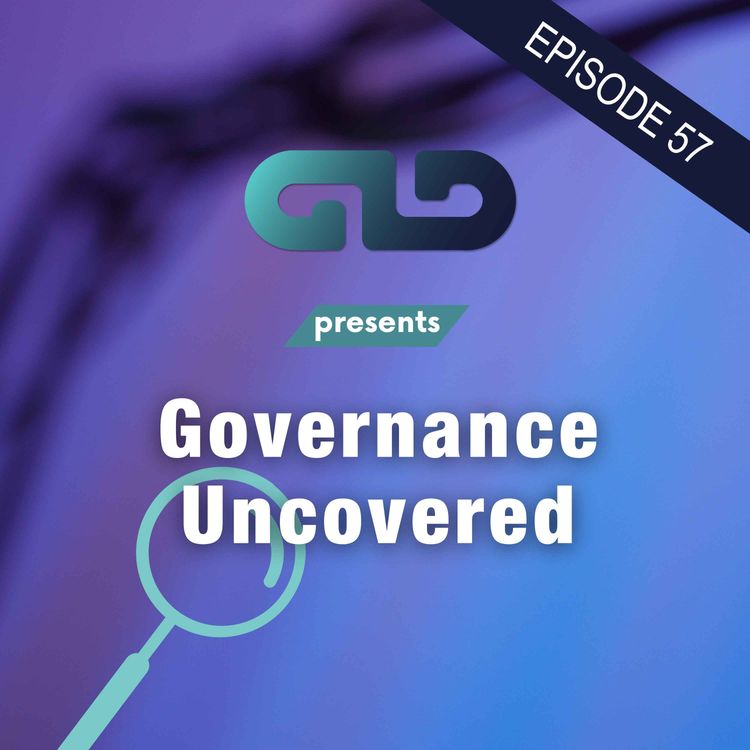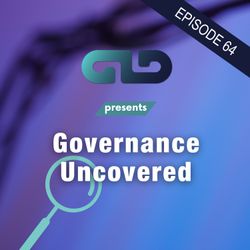Share

Governance Uncovered
The International Nationalism of Bolsonarismo and its Impact on Local Communities in Brazil
In this episode, we are joined by GLD fellow Fernando Brancoli, who is an Associate Professor at the Institute for International Relations and Defense, Federal University of Rio de Janeiro. He is also an Associated Researcher at the Orfalea Center for Global Studies, University of California, Santa Barbara.
Fernando and host Ellen Lust discuss Fernando’s book Bolsonarismo - The Global Origins and Future of Brazil’s Far Right, published with Rutgers University Press in November 2023. The book looks at the rise of the far-right alliance that emerged in Brazil in 2020 around the figure of former president Jair Bolsonaro, exploring how Bolsonarismo has developed a specific political orientation through its partnerships with other groups, practices, and subjectivities within Brazil, as well as internationally.
Ellen and Fernando talk about how the rise of far-right movements and Bolsonarismo has impacted and continues to impact different types of local communities within Brazil. Fernando points to the interaction between transnational, national, and local influences when explaining Bolsonarismo and how local communities have organized themselves in response. He parallels former and current leaders like Victor Orban, Benjamin Netanyahu, and Donald Trump and suggests that Bolsonaro can be considered an international nationalist who aimed to create alliances to keep international actors out of Brazil. He also gives examples of how indigenous communities have utilized both cross-community and transnational relations and created new platforms of engagement and governance to build resistance.
Discussions about this and much more will follow in the episode. We hope you find it interesting!
-----
Fernando Brancoli is an Associate Professor at the Institute for International Relations and Defense, Federal University of Rio de Janeiro (UFRJ), Brazil. He was a Fellow at the Institute for Advanced Studies (SPSS) in Princeton (2021-2023) and is currently an Associated Researcher at the Orfalea Center for Global Studies, University of California, Santa Barbara, both in the US. Specializing in South-South relations, Brancoli's research delves into governance, security, and development. He conducted extensive fieldwork across three continents, exploring the interplay between local communities and transnational entities and their collective impact on governance. His publications include Bolsonarismo - The Global Origins and Future of Brazil’s Far Right (Rutgers University Press, 2023) and The Tropical Silk Road: The Future of China in South America (Stanford University Press, 2022).
More episodes
View all episodes

64. Claim-Making in Comparative Perspective
32:05||Season 1, Ep. 64EPISODE TRANSCRIPTIONIn this episode, we are joined by Gabrielle Kruks-Wisner to discuss her Cambridge Element, Claim-Making in Comparative Perspective: Everyday Citizenship Practice and Its Consequences, co-written with Janice Gallagher and Whitney Taylor. Gabi and Ellen explore how everyday claim-making strategies help citizens fulfill their rights. Gabi highlights that claim-making is often overlooked in political behavior studies, which usually focus on elections, mass protests, high court decisions, and legislative actions. This raises the question: What about the politics of the everyday? The Element and this interview address this question through research from Colombia, South Africa, India, and Mexico. Examples include families in Mexico seeking information about disappeared loved ones, citizens in rural India securing basic services like clean drinking water and education, and the fight for housing and healthcare rights in Colombia and South Africa. Despite different contexts, all these cases highlight the persistent, often mundane efforts of citizens engaging with bureaucrats and appointed officials to claim their rights.
63. Embedding Rights and Fighting Impunity: Citizen Legal Action in Colombia and Mexico
52:10||Season 1, Ep. 63EPISODE TRANSCRIPTIONThis episode features interviews with Whitney Taylor, Associate Professor of Political Science at San Francisco State University, and Janice Gallagher, Associate Professor of Political Science at Rutgers University-Newark. Both have recent books on legal mobilization in Latin America. Whitney Taylor ‘s book, The Social Constitution: Embedding Social Rights Through Legal Mobilization, looks at Colombia's 1991 Constitution and how citizens use the 'Tutela' mechanism to claim rights.In Bootstrap Justice: The Search for Mexico's Disappeared, Janice Gallagher explores how Mexican families of disappeared persons engage in 'bootstrap justice,' becoming self-taught investigators to fight impunity. Both conversations highlight grassroots efforts to embed legal rights and challenge power structures in complex political landscapes.
62. Democracy under Inequality in Rural Pakistan
43:42||Season 1, Ep. 62EPISODE TRANSCRIPTIONIn this episode, we have Shandana Khan Mohmand joining us. She is a Research Fellow at the Institute of Development Studies, University of Sussex, and an Associate Fellow at the Institute of Development and Economic Alternatives in Pakistan. Shandana and host Ellen Lust discuss Shandana's book, Crafty Oligarchs, Savvy Voters: Democracy under Inequality in Rural Pakistan, which was published by Cambridge University Press in 2019. The book explores political engagement in rural Pakistan, blending perspectives on clientelism and voting in the global South. Listen to hear Shandana share insights from her extensive research, the collaborative efforts behind the book, and the relationship between land, kinship, and electoral politics in Pakistan.
61. Social Norms and State Engagement in East Jerusalem
19:08||Season 1, Ep. 61EPISODE TRANSCRIPTIONThis is a bonus episode of Governance Uncovered that is shorter than usual but just as filled with fascinating insights on local governance research. Our guest is Hannah Early Bagdanov, a PhD candidate in Political Science at the University of Notre Dame. She is also a Doctoral Student Affiliate of the Kellogg Institute for International Studies and the Klau Center for Civil & Human Rights. This episode will discuss Hannah's GLD working paper, "Social Norms and Sector-Level Engagement with the State: Evidence from East Jerusalem." Hannah's research highlights how historical events have shaped the unique status and social norms of East Jerusalemites, influencing their interactions with the Israeli state. We'll also explore how Palestinians in East Jerusalem navigate their engagement with various state services, driven by community social norms, and discuss the contemporary implications in light of ongoing conflicts in Gaza and the West Bank. So, tune in to learn more about the relationship between Palestinians and the Israeli state in East Jerusalem.
60. From Voters to Leaders? Unpacking Nepal's Quota System
37:54||Season 1, Ep. 60EPISODE TRANSCRIPTThis podcast is brought to you by the Governance and Local Development Institute at the University of Gothenburg and supported by the Swedish Research Council.In today's episode, we have Prakash Bhattarai joining us. Prakash is the Executive Director at the Center for Social Change, a non-profit think-tank based in Kathmandu, Nepal, working on the changing socio-political dynamics of Nepalese society via research, education, advocacy, and community mobilization.Host Ellen Lust and Prakash met to discuss quotas in Nepal at the local level, particularly quotas for women and the so-called lower castes, known as Dalits.The discussion is based on Prakash's research that evaluates the impact of Nepal's 2015 constitution, which introduced a federal governance system with quotas to ensure women, Dalits, and other marginalized groups are represented in all levels of government. Prakash argues that constitutionally mandated quotas offer only surface-level representation and don't foster true diversity and inclusion. For genuine representation, marginalized groups need to be part of the decision-making bodies within political parties and civic organizations. Beyond political inclusion, social inclusion is crucial for broader democratic engagement.LINKS:Prakash Bhattarai: socialchange.org.np/team-members/Center for Social Change: socialchange.org.np/
59. Decentralization and Recentralization: Governance Dynamics in the MENA Region
45:59||Season 1, Ep. 59TRANSCRIPTIONGovernance Uncovered is a podcast produced by the Governance and Local Development Institute at the University of Gothenburg. This podcast is supported by the Swedish Research Council.EPISODE 59We are happy to let you know that this is another podcast mashup, this time with the Middle East Law and Governance (MELG) podcast. MELG is a peer-reviewed journal for scholarly analysis on issues pertaining to governance and social, economic, and ideological transformation in the MENA region. On the MELG podcast, they talk to the journal's contributors about their work and current events in the region. The podcast is hosted by MELG advisory board member Ezra Karmel.Ezra joined us in Gothenburg along with Christiana Parreria, Assistant Professor in the International Relations and Political Science Department at the Geneva Graduate Institute, and Intissar Kherigi, Research Associate at Sciences Po in Paris, and a visiting lecturer at Ibn Haldun University in Istanbul.Together with host Ellen Lust, they delve into how decentralization has shaped the political landscapes of countries like Tunisia, Lebanon, and Jordan. Listen to hear about the complex balance of power, the role of elites, and the ongoing challenges of governance reform across the region.LINKSEzra Karmel: gld.gu.se/en/about-gld/network…fellows/ezra-karmel/Christiana Parreria: gld.gu.se/en/about-gld/network…christiana-parreira/Intissar Kherigi: gld.gu.se/en/about-gld/network…es/intissar-kherigi/
58. Exploring Governance in Gothenburg: Sharing Economy, Citizen Engagement, and Integration
50:41||Season 1, Ep. 58EPISODE TRANSCRIPTIn this episode, we focus on governance at a local level in the city where GLD is based - Gothenburg. We discuss the potential of sharing economies at the household level and the Gothenburg Proposal, an e-petition platform that enhances local democracy and citizen engagement. We also share the inspiring work of Swedish Development Partner Gothenburg, also known as "IM Gothenburg," and their contribution towards local integration in the city.Interviews: Divia Jiménez Encarnación from Chalmers University and Emma Öhrwall from Democracy and Citizen Services, City of Gothenburg, were interviewed by Erica Metheney (GLD). Paper discussed: Jiménez Encarnación, Divia; Metheney, Erica Ann; Thuvander, Liane; Kalmykova, Yuliya; and Rosado, Leonardo. (2024). “Revealing patterns in household product consumption and sharing: An approach to support urban governance towards a sustainable sharing economy,” Sustainable Production and Consumption, Volume 45, Pages 244-264, https://doi.org/10.1016/j.spc.2024.01.009Åsa Aguayo Åkesson from Democracy and Citizen Services, City of Gothenburg, interviewed by Sara Bjurenvall (GLD). More information about the Gothenburg Proposal can be found here.Saga Cambon from IM Gothenburg was interviewed by Ellen Lust (GLD). IM Instagram: https://www.instagram.com/imsweden/
56. State-Building as Lawfare: Custom, Sharia, and State Law in Postwar Chechnya
31:46||Season 1, Ep. 56EPISODE TRANSCRIPTIn this episode, we are joined by Egor Lazarev, who is an assistant professor in the Department of Political Science at Yale University. Egor and host Ellen Lust discuss Egor's book State-Building as Lawfare: Custom, Sharia, and State Law in Postwar Chechnya, which was published by Cambridge University Press in 2023. The book addresses two interrelated puzzles: why do local rulers tolerate and even promote non-state legal systems at the expense of state law, and why do some members of repressed ethnic minorities choose to resolve their everyday disputes using state legal systems instead of non-state alternatives? It documents how the rulers of Chechnya promote and reinvent customary law and Sharia in order to borrow legitimacy from tradition and religion, increase autonomy from the metropole, and accommodate communal authorities and former rebels. At the same time, the book shows how prolonged armed conflict disrupted the traditional social hierarchies and pushed some Chechen women to use state law, spurring state formation from below. As Ellen and Egor discuss the book, they get into how Egor first became interested in working in Chechnya, and on issues of legal pluralism, individual-level decision-making, and whether Egor believes that the book's perspective on the state as fragmented, always including centers and peripheries, extends to other contexts than the one of Chechnya and Russia. Lazarev, Egor. (2023). State-Building as Lawfare: Custom, Sharia, and State Law in Postwar Chechnya, Cambridge University Press. Online ISBN:DOI:https://doi.org/10.1017/9781009245913